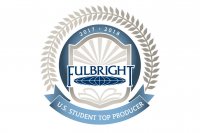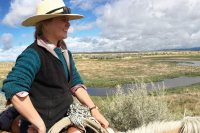

For the 14th consecutive year, Bates has been recognized as a Top Producer of Fulbright U.S. Student awards, the U.S. Department of State announced today.
The honor, also reported in The Chronicle of Higher Education today, recognizes the college’s five Fulbrighters who are now in Cyprus, Bulgaria, Norway, Taiwan, and Thailand participating in study and research exchanges or serving as English-teaching assistants in local schools.
For 14 consecutive years — since the 2011-2012 academic year — Bates has been named a Fulbright Student Top Producer, placing it among an elite group of just 11 undergraduate liberal arts colleges with such long-running streaks of Fulbright recognition. Twice in the past seven years, Bates has been the No. 1 producer of Fulbright Student awards.
Since 1946, the Fulbright Program has provided more than 400,000 accomplished students, scholars, teachers, artists, and professionals of all backgrounds with the opportunity to study, teach, and conduct research abroad.
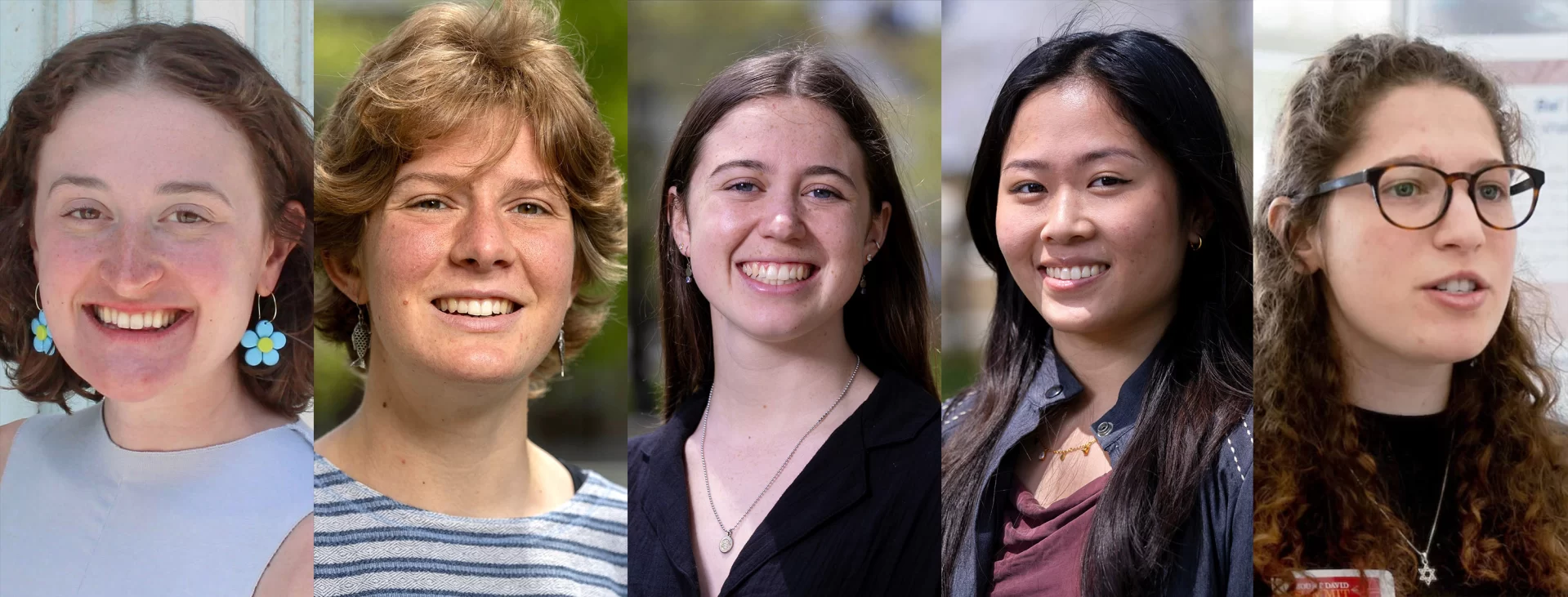
“We are honored to be again recognized as a Top Producer of Fulbright U.S. Student awards,” Bates President Garry W. Jenkins said. “It is a source of great pride at Bates that so many of our outstanding students have been part of the Fulbright program. In their work and contributions abroad, these talented young alumni further Bates’ mission of global engagement in important and meaningful ways.”
College students, and Bates students in particular — with their curiosity and determination — have a special ability to succeed at this task, says Robert Strong, director of national fellowships at Bates and a lecturer in English.
“The Fulbright program has chosen students specifically to be ambassadors,” Strong says. “They’re honest, they’re uncertain. They tell things like they are, and the world needs to have that explanation.”
Shortly after graduating from Bates last spring with a major in earth and climate sciences, Jamie Hollander ’24 of Medfield, Mass., began her Fulbright study/research grant in Norway, deep in the Arctic on the Svalbard archipelago.
The area is familiar territory for Bates folks, thanks to decades of fieldwork conducted there by Professor Emeritus of Geology Mike Retelle and his students, including Hollander, who studied in Svalbard in summer 2023.
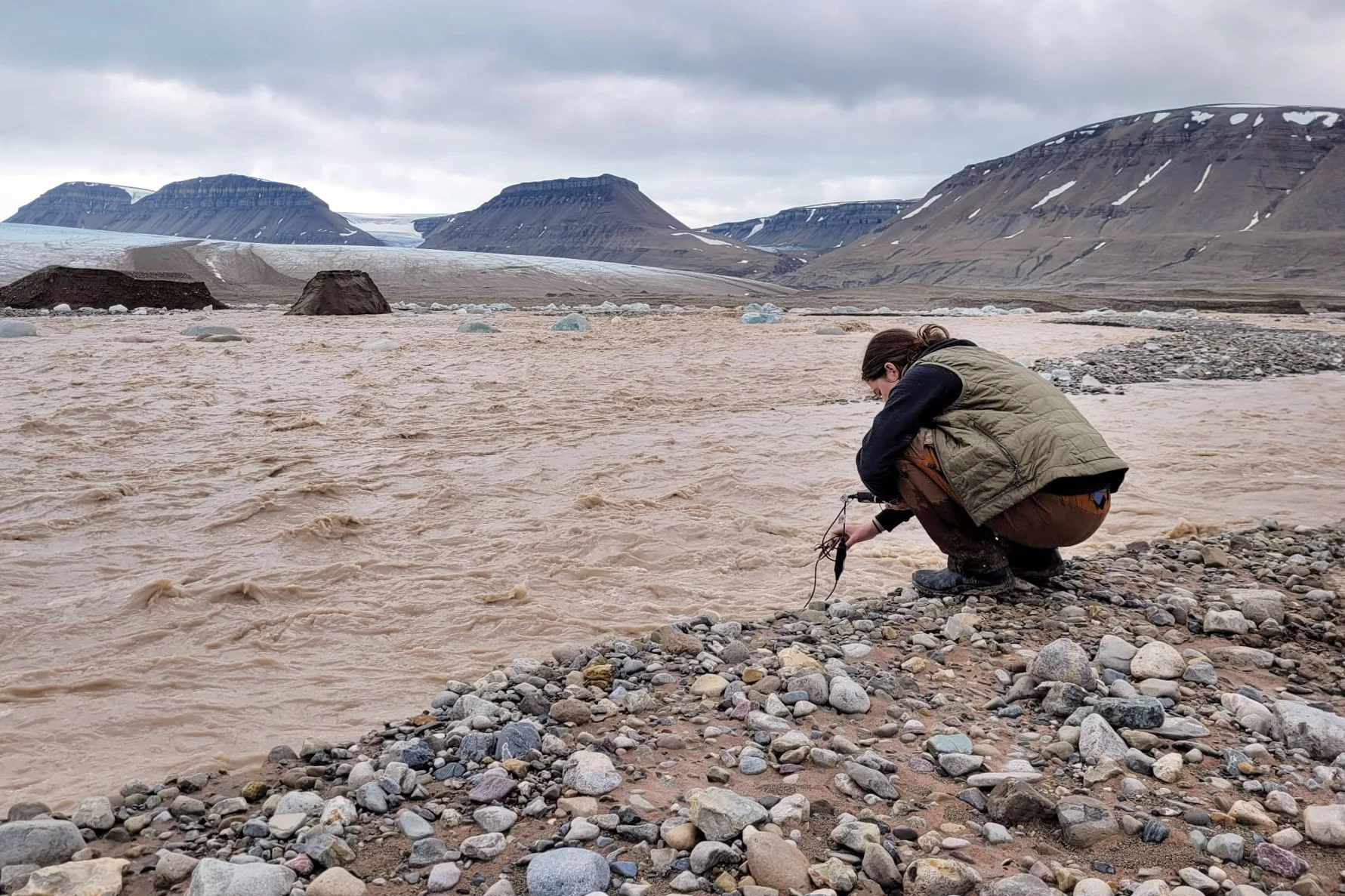
Hollander is studying the impact of climate change on methane emissions from retreating glaciers in Svalbard. After doing field work through the University Centre in Svalbard, she has relocated to the city of Tromsø to perform lab and data analysis for the Arctic University of Norway.
Hollander’s experience studying abroad in Svalbard and the two years she spent working alongside Charles A. Dana Professor of Earth and Climate Sciences Beverly Johnson, studying carbon storage in coastal Maine’s salt marshes, prepared her for the work.
Located above the Arctic Circle, Svalbard is a land of extremes. The “midnight sun,” burning bright overhead when Hollander arrived, does not set from April to August. Despite the enduring sunshine, summer temperatures average around 40 degrees, and the population barely clears 2,500 people.
Hollander spent most days on Svalbard collecting water and gas samples at a remote field research site. To get there, she drove 15 minutes outside of town and then walked for two hours, repeating the same steps in reverse on the way home.
“It felt like describing a storybook adventure,” Hollander says. “It was like, ‘First you walked over the tundra, and it was really muddy and squishy, but there were a lot of flowers and reindeer, so it was cool. And then you walk, and you go through this big flat river plane, and then you have to do a river crossing.’”
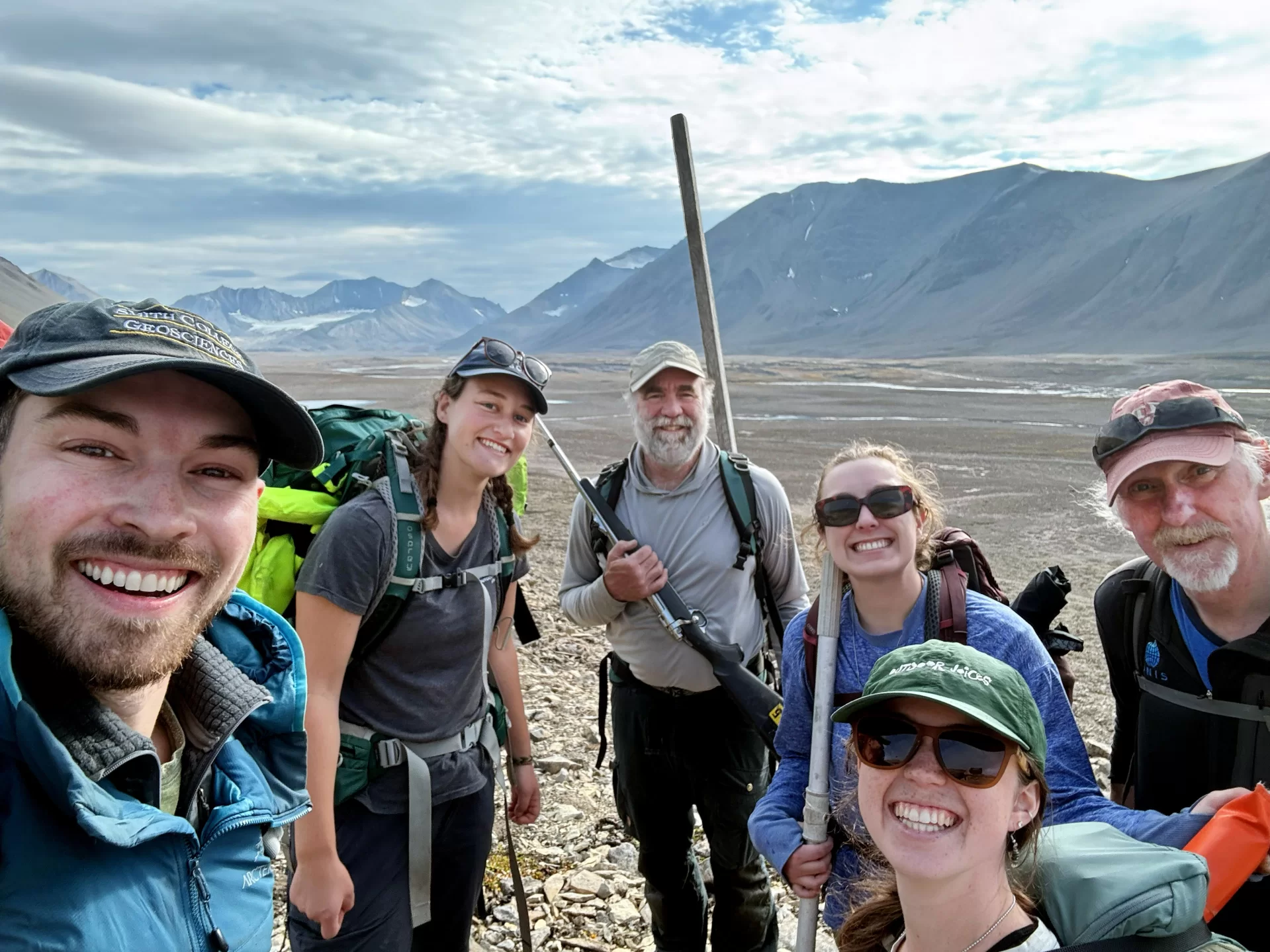
Thanks to her experience in Svalbard with Retelle, Hollander knew how to dress for the weather. The sun was bright, but the winds were fierce. She often oscillated between sweating and freezing, depending on the amount of equipment she was carrying and how much she was moving. In preparation, Hollander always carried many clothing options, with layers to be added and removed as needed.
“You mix and match like a Barbie doll all day,” Hollander says. “It’s a very delicate balance that you never really figure out.”
She also never left her house without a rifle and a flare gun, necessary equipment for life alongside polar bears. As an American toting her gear, Hollander met people who were quick to make jokes about America and its guns.
To Hollander, who was at Bates during the October 2023 shooting in Lewiston, the jokes weren’t funny. She used them as an opportunity to further the Fulbright mission of intercultural exchange and education.
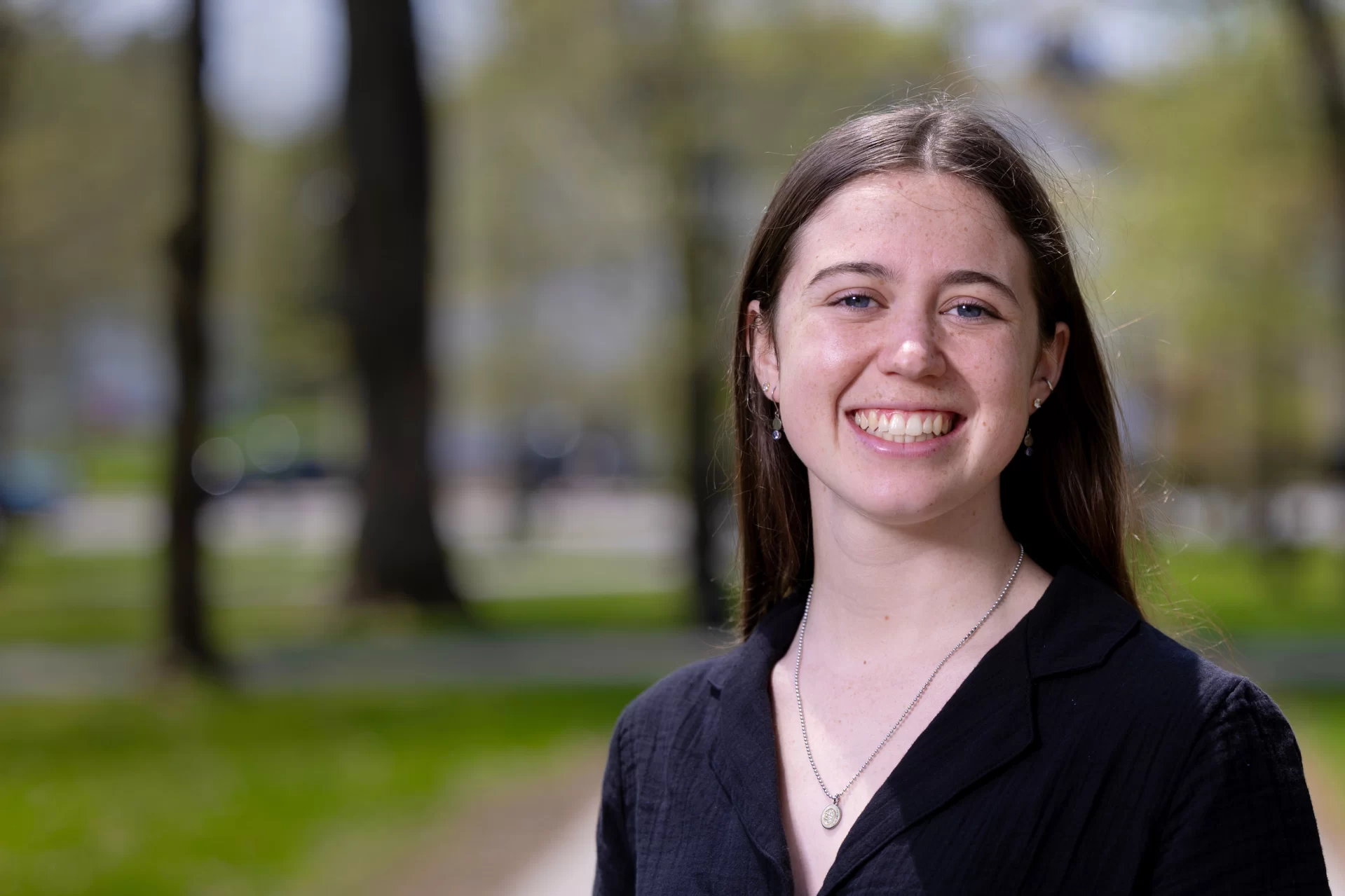
“I know the consequences of what something like this can be. That opened up a pathway for me to be very genuine and upfront with people.”
Jamie Hollander ’24
“I know the consequences of what something like this can be and what joking around like this can mean,” Hollander says. “That opened up a pathway for me to be very genuine and upfront with people. You can joke about things happening in the U.S., but this is very real to some people, too, and this is very tangible.”
Reading American headlines from afar, Hollander has had the opportunity to discuss American culture with her colleagues from other countries, who were eager to understand what was happening in the U.S. during a time of political upheaval.
Hollander has also learned from other people whose home countries were experiencing political shifts; she connected with her German colleagues, for example, when the German government entered a crisis the same week as the American presidential election.
“It’s given me the opportunity to really understand what my values are and be able to communicate them in a really genuine way,” Hollander says.
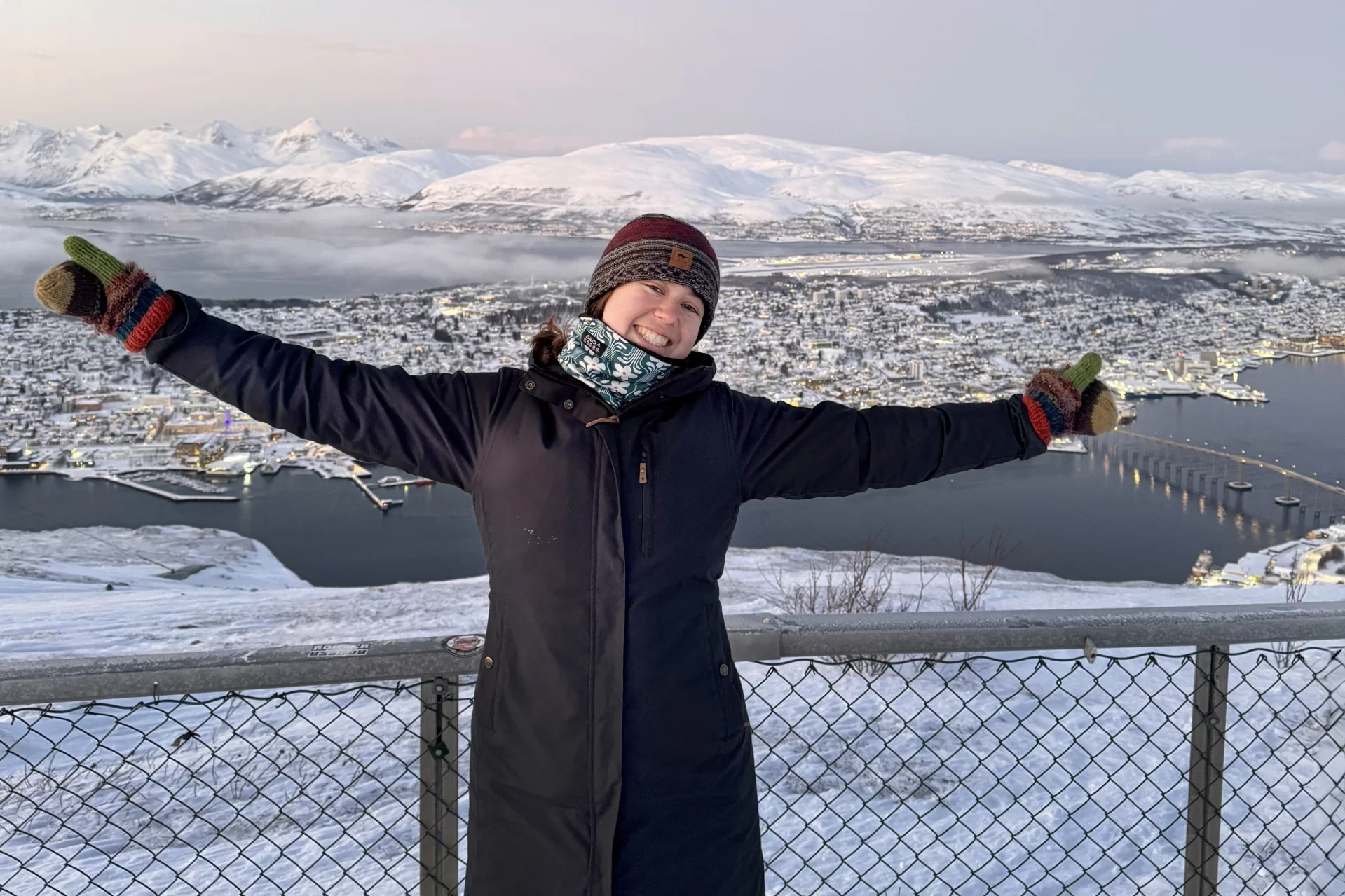
Though such conversations can be difficult, the goal of a Fulbright exchange becomes even more important when the world is wrought with change and turmoil, Strong says.
“In any moment where there’s uncertainty in the world about what the heck is going on with America, the Fulbright grantees become more valuable, even if they’re as confused as everyone else,” Strong says. “For the world to be able to hear an American take on the American situation is the whole point of Fulbright.”
Hollander has been a cultural steward in both directions. In her free time, she teaches first graders at Montello Elementary School in Lewiston about the Arctic via a classroom exchange program called Reach the World. Hollander previously volunteered at Montello through the Harward Center as a Book Buddy, helping students with reading comprehension.
Now, Hollander writes blog posts about Norway for the students and video calls them, fielding questions about life in Scandinavia. Recently, a student asked if there were penguins in the Arctic and if people eat them. “The answer is no to both of those,” Hollander says. “But I like curiosity.”
Hollander also maintains a personal blog for family and friends, where she documents her work and life in Norway.
Outside of her projects with the universities, Hollander has made the most of her time abroad. She worked as a teaching assistant for Retelle in Svalbard, the experience that inspired her Fulbright application, and served as a judge at an Arctic science poster competition for high school students.
She is also involved with nonprofit organization Rissa Citizen Science, a group of nature advocates in Northern Norway, and has helped the nonprofit organization with project proposals, blogs, and conservation efforts around Tromsø.
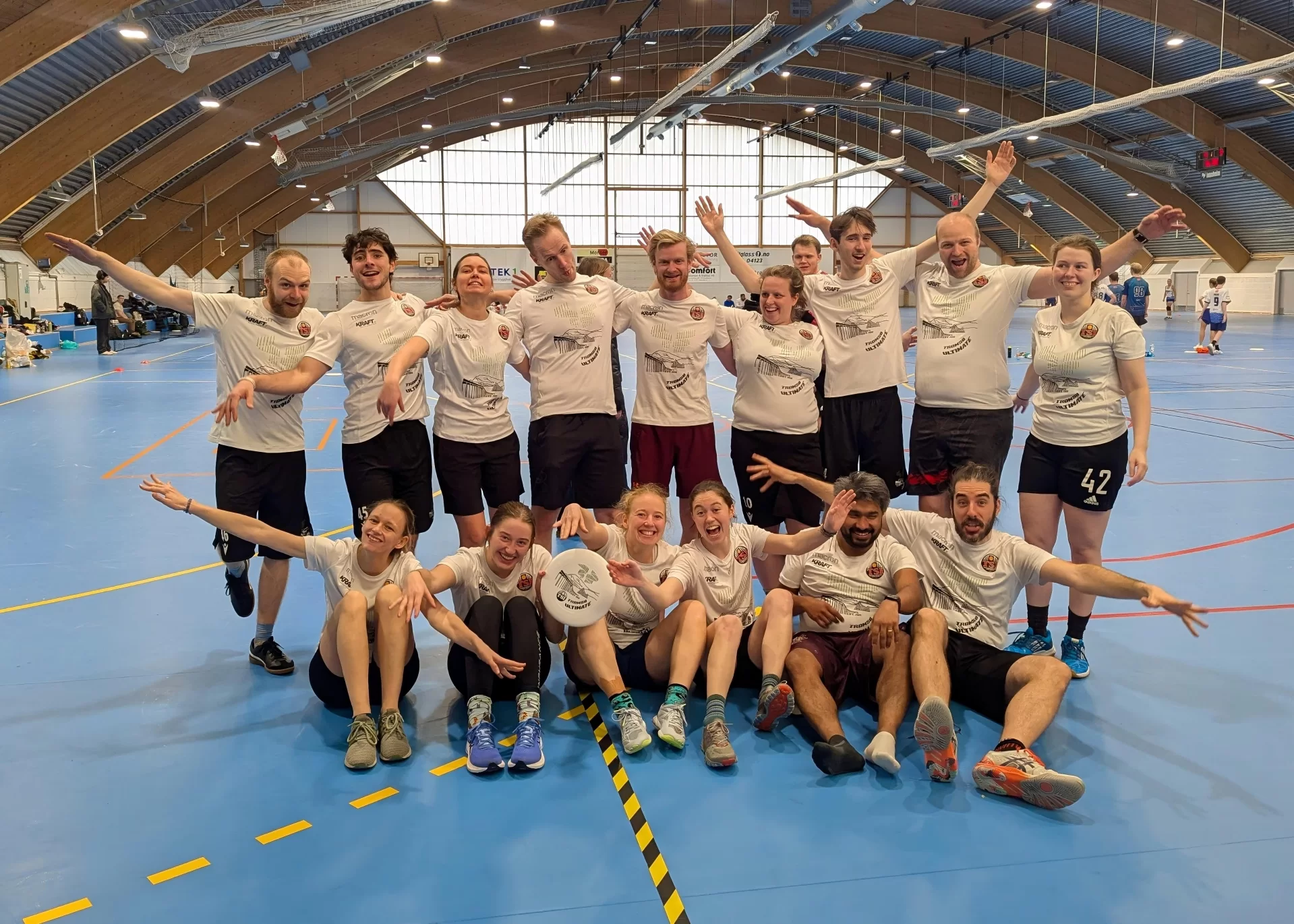
For Hollander and her fellow 2024–25 Fulbrighters, Caroline Barnes ’19, Caroline Cassell ’24, Qi Schmidt ’24, and Phoebe Stern ’24, the journey to becoming a Fulbrighter was a long and careful process, but at Bates, applicants don’t set out alone.
“It’s amazing how much work goes into supporting an application in the best and most joyful way,” Strong says. “There’s a whole group of people who have a window on that student’s success.”
As a writing teacher, Strong knows how to tell stories and help students find them. He starts with intentional conversation; when he finds a student who is interested in applying for a Fulbright grant or another fellowship, Strong takes the time to sit down and talk with them.
He wants to hear not only about the student’s academic achievements but also their personal interests, hobbies, and ambitions. Here, through the amalgamation of scholarship and personality, lies the narrative key to building a successful Fulbright application.
“I’ve loved to work with students and then see them succeed,” Strong says. “They’ve been completely self-motivated through the process.”
In addition to support from Strong, each Fulbright applicant at Bates also works closely with a faculty mentor who guides them and offers feedback on application materials. As the campus application deadline nears, students present their work before a review committee.
“The faculty that are on the committee are willing to put in a level of work that is immense and give a level of care to the applications that is wonderful,” Strong says.
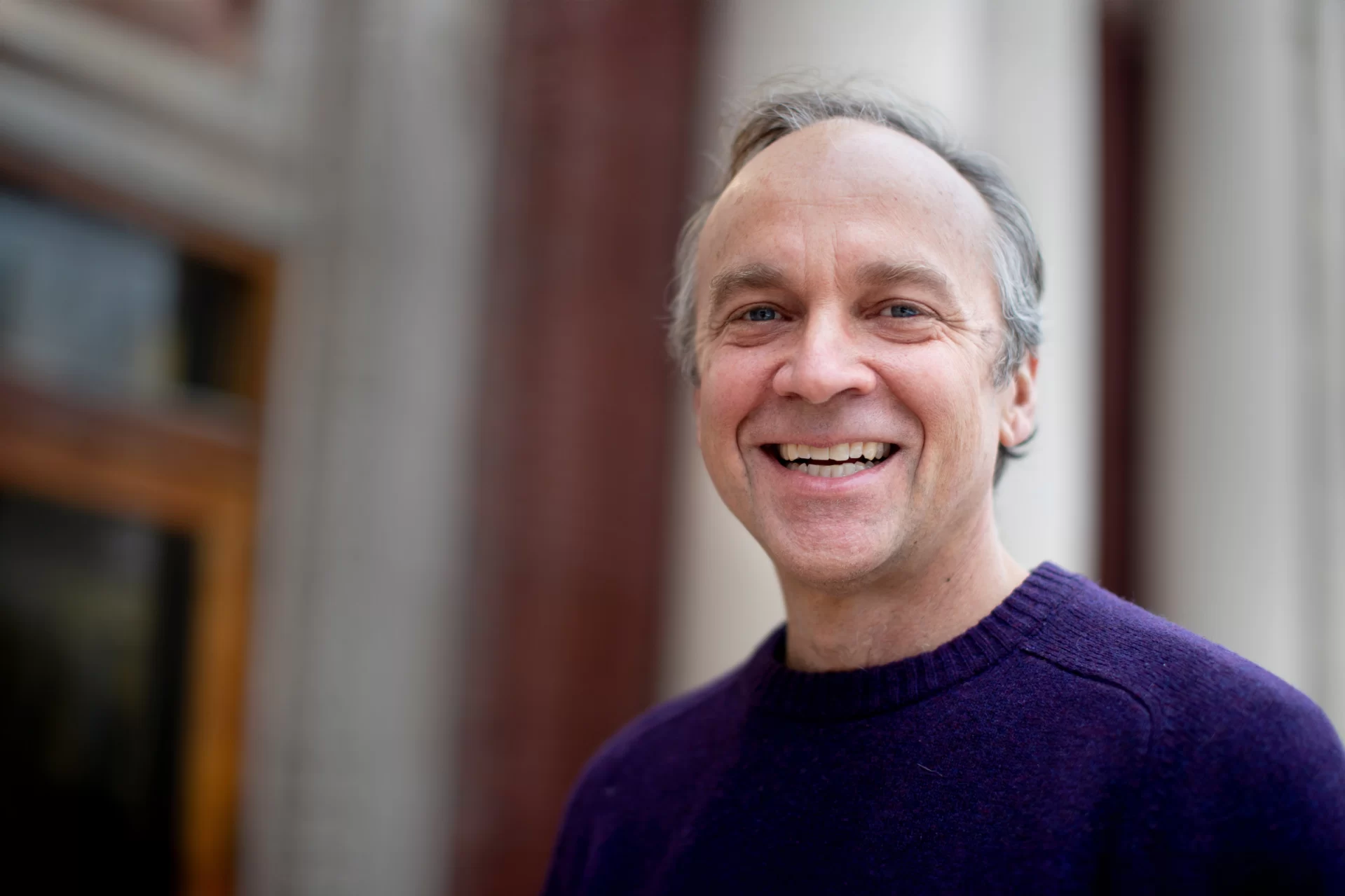
“The faculty are willing to put in a level of work that is immense and give a level of care to the applications that is wonderful.”
Robert Strong, director of national fellowships at Bates and a lecturer in English.
Most Fulbright hopefuls start the application process their junior year, with goals to go abroad after their senior year, but this varies. Some students have been making preparations with Strong since attending Bates Prologue as a high school student, and some don’t apply until after graduation; about a quarter of Bates’ Fulbright applicants each year are alumni, who have access to the same faculty mentorship as current students.
Like many Fulbrighters, Hollander began her application as a junior. But as the application deadline grew near, she looked over the research project she’d been designing and felt herself losing confidence.
“You really have to design your own work and design your own experience from the ground up,” Hollander says. “That was something that was daunting for me.”
Hollander turned to Strong, unsure if she should complete her application. Thanks to his encouragement that she continue on, and well-timed fieldwork experiences in Svalbard, Hollander persevered and turned in an application teeming with fresh ideas.
All the way back in Lewiston, Strong too is a student of the world. Through supporting students’ applications, he learns about various academic fields and the countries students hope to work in. Once they’re abroad, they send postcards back to Strong’s Coram Hall office, bringing a bit of the world to Bates.
“I sit here in Maine, and I get to learn,” Strong says. “I learn about physics. I learn about philosophy. I learn about politics. I learn about Malaysia and Indonesia. Every year I learn about these things, and then they go out into the world.”
Faculty Featured
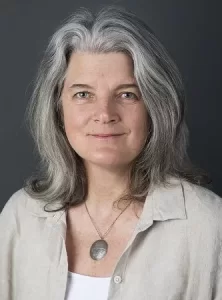
Beverly J. Johnson
Charles A. Dana Professor of Earth and Climate Sciences
